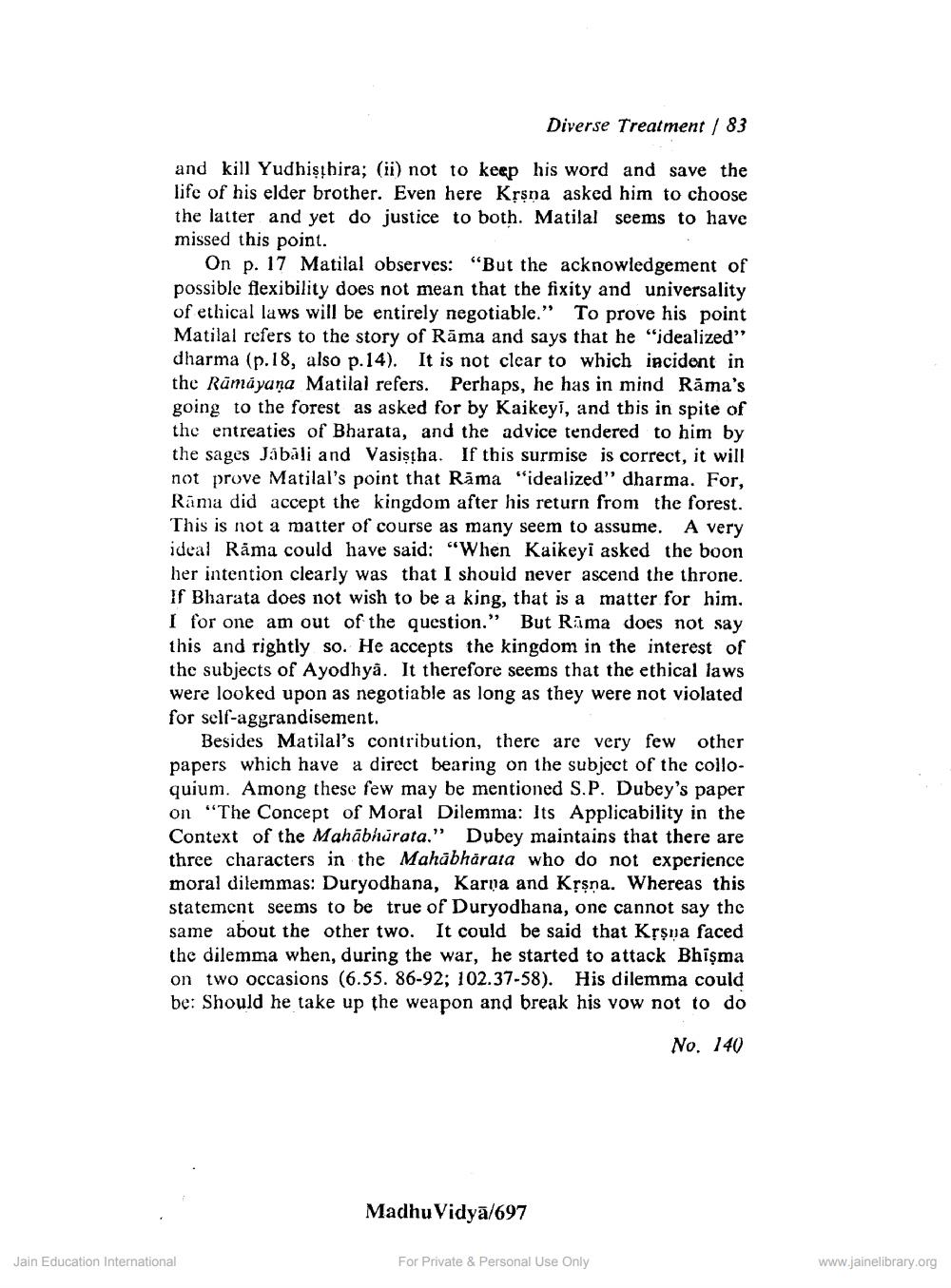________________
Diverse Treatment / 83
and kill Yudhisthira; (ii) not to keep his word and save the life of his elder brother. Even here Krsna asked him to choose the latter and yet do justice to both. Matilal seems to have missed this point.
On p. 17 Matilal observes: "But the acknowledgement of possible flexibility does not mean that the fixity and universality of ethical laws will be entirely negotiable.” To prove his point Matilal refers to the story of Rāma and says that he "idealized” dharma (p.18, also p.14). It is not clear to which incident in the Rāmāyaṇa Matilai refers. Perhaps, he has in mind Rāma's going to the forest as asked for by Kaikeyi, and this in spite of the entreaties of Bharata, and the advice tendered to him by the sages Jábali and Vasistha. If this surmise is correct, it will not prove Matilal's point that Rama "idealized" dharma. For, Rāma did accept the kingdom after his return from the forest. This is not a matter of course as many seem to assume. A very ideal Rama could have said: “When Kaikeyi asked the boon her intention clearly was that I should never ascend the throne. If Bharata does not wish to be a king, that is a matter for him. I for one am out of the question." But Rama does not say this and rightly so. He accepts the kingdom in the interest of the subjects of Ayodhya. It therefore seems that the ethical laws were looked upon as negotiable as long as they were not violated for self-aggrandisement.
Besides Matilal's contribution, there are very few other papers which have a direct bearing on the subject of the colloquium. Among these few may be mentioned S.P. Dubey's paper on "The Concept of Moral Dilemma: Its Applicability in the Context of the Mahābhurata." Dubey maintains that there are three characters in the Mahabharata who do not experience moral dilemmas: Duryodhana, Karya and Krsna. Whereas this statement seems to be true of Duryodhana, one cannot say the same about the other two. It could be said that Krşa faced the dilemma when, during the war, he started to attack Bhişma on two occasions (6.55. 86-92; 102.37-58). His dilemma could be: Should he take up the weapon and break his vow not to do
No. 140
Madhu Vidyā/697
Jain Education International
For Private & Personal Use Only
www.jainelibrary.org




